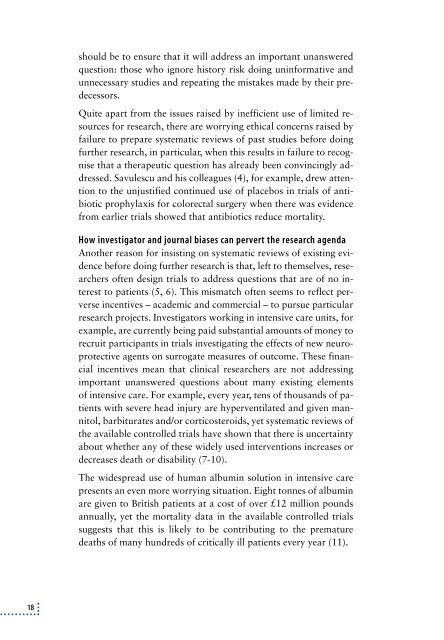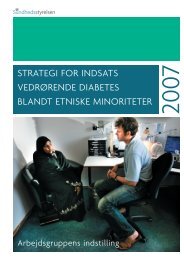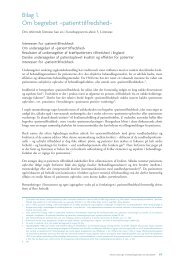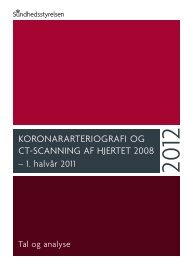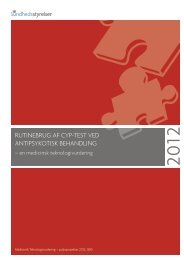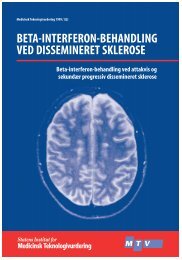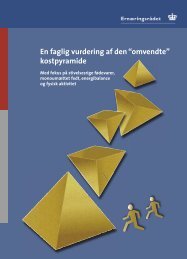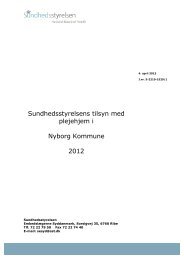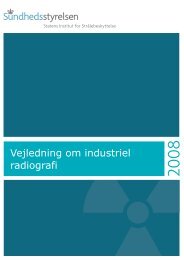MTV, sundhedstjenesteforskning og klinisk praksis
MTV, sundhedstjenesteforskning og klinisk praksis
MTV, sundhedstjenesteforskning og klinisk praksis
You also want an ePaper? Increase the reach of your titles
YUMPU automatically turns print PDFs into web optimized ePapers that Google loves.
should be to ensure that it will address an important unanswered<br />
question: those who ignore history risk doing uninformative and<br />
unnecessary studies and repeating the mistakes made by their predecessors.<br />
Quite apart from the issues raised by inefficient use of limited resources<br />
for research, there are worrying ethical concerns raised by<br />
failure to prepare systematic reviews of past studies before doing<br />
further research, in particular, when this results in failure to rec<strong>og</strong>nise<br />
that a therapeutic question has already been convincingly addressed.<br />
Savulescu and his colleagues (4), for example, drew attention<br />
to the unjustified continued use of placebos in trials of antibiotic<br />
prophylaxis for colorectal surgery when there was evidence<br />
from earlier trials showed that antibiotics reduce mortality.<br />
How investigator and journal biases can pervert the research agenda<br />
Another reason for insisting on systematic reviews of existing evidence<br />
before doing further research is that, left to themselves, researchers<br />
often design trials to address questions that are of no interest<br />
to patients (5, 6). This mismatch often seems to reflect perverse<br />
incentives – academic and commercial – to pursue particular<br />
research projects. Investigators working in intensive care units, for<br />
example, are currently being paid substantial amounts of money to<br />
recruit participants in trials investigating the effects of new neuroprotective<br />
agents on surr<strong>og</strong>ate measures of outcome. These financial<br />
incentives mean that clinical researchers are not addressing<br />
important unanswered questions about many existing elements<br />
of intensive care. For example, every year, tens of thousands of patients<br />
with severe head injury are hyperventilated and given mannitol,<br />
barbiturates and/or corticosteroids, yet systematic reviews of<br />
the available controlled trials have shown that there is uncertainty<br />
about whether any of these widely used interventions increases or<br />
decreases death or disability (7-10).<br />
The widespread use of human albumin solution in intensive care<br />
presents an even more worrying situation. Eight tonnes of albumin<br />
are given to British patients at a cost of over £12 million pounds<br />
annually, yet the mortality data in the available controlled trials<br />
suggests that this is likely to be contributing to the premature<br />
deaths of many hundreds of critically ill patients every year (11).<br />
18


